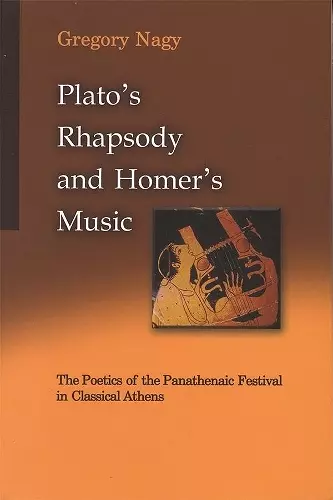Plato's Rhapsody and Homer's Music
The Poetics of the Panathenaic Festival in Classical Athens
Format:Paperback
Publisher:Harvard University, Center for Hellenic Studies
Published:29th Jan '03
Currently unavailable, and unfortunately no date known when it will be back

The festival of the Panathenaia, held in Athens every summer to celebrate the birthday of the city's goddess, Athena, was the setting for performances of the Homeric Iliad and Odyssey by professional reciters or "rhapsodes." The works of Plato are our main surviving source of information about these performances. Through his references, a crucial phase in the history of the Homeric tradition can be reconstructed. Through Plato's eyes, the "staging" of Homer in classical Athens can once again become a virtual reality.
This book examines the overall testimony of Plato as an expert about the cultural legacy of these Homeric performances. Plato's fine ear for language—in this case the technical language of high-class artisans like rhapsodes—picks up on a variety of authentic expressions that echo the talk of rhapsodes as they once practiced their art.
Highlighted among the works of Plato are the Ion, the Timaeus, and the Critias. Some experts who study the Timaeus have suggested that Plato must have intended this masterpiece, described by his characters as a humnos, to be a tribute to Athena. The metaphor of weaving, implicit in humnos and explicit in the peplos or robe that was offered to the goddess at the Panathenaia, applies also to Homeric poetry: it too was pictured as a humnos, destined for eternal re-weaving on the festive occasion of Athena's eternally self-renewing birthday.
ISBN: 9780674009639
Dimensions: 206mm x 125mm x 13mm
Weight: 218g
136 pages